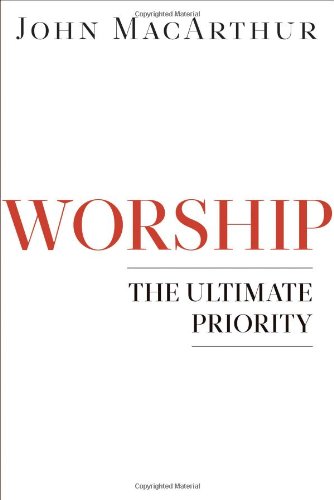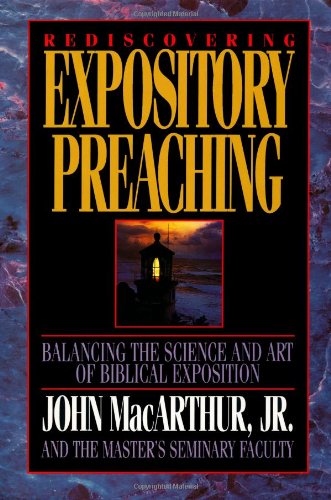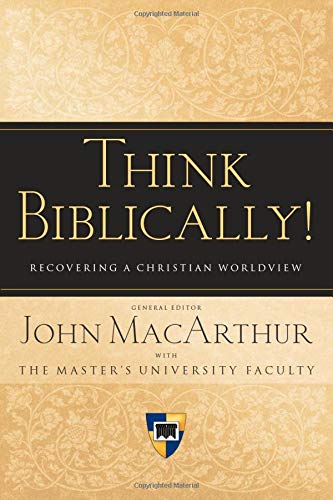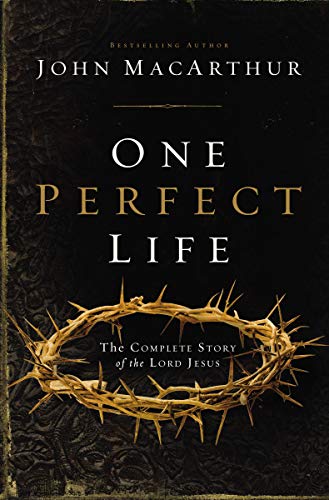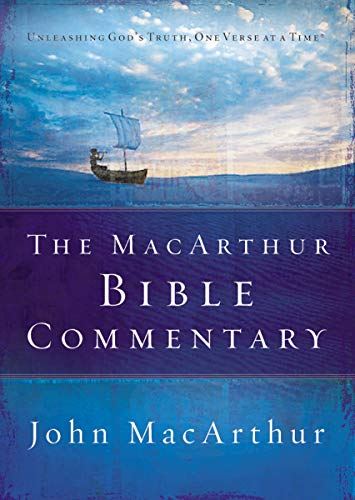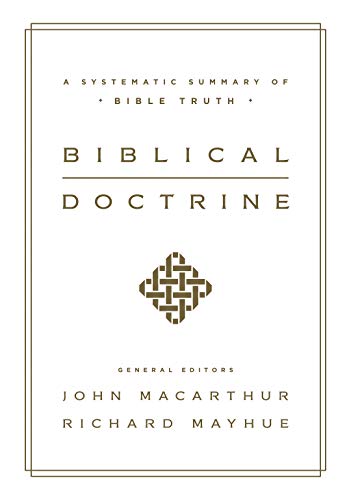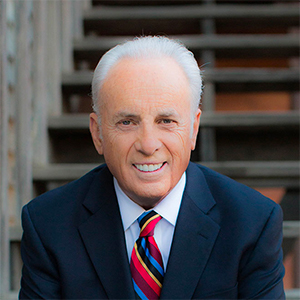
Quotes by John MacArthur
Self-centered Christians who serve the Lord halfheartedly seldom have to pay a price for their faith. They are of little threat to Satan’s work because they are of little benefit to Christ’s.
Being boastful is the outward manifestation of self-love. Boastful translates alazōn, a noun meaning “braggart,” which Plato defined as a person who claims greatness that he does not possess. Boastful persons brag about their accomplishments, overstating the truth to the degree that it has no basis in reality. They are know-it-alls who try to deceive people into thinking they are brilliant. They love to see their names in print and their faces on television. They exaggerate their abilities, their accomplishments, their talents, their reputations, and their value to society and to the church. They are always the heroes of their own stories.
The eighteenth-century preacher Samuel Johnson said, “He that overvalues himself will undervalue others. And he that undervalues others will oppose them.” Self-love alienates men from God and from each other. Self-love is the supreme enemy of godliness and of genuine friendship and fellowship.
Even self-depreciation, putting yourself down, is but a thinly disguised attempt to get others to build you up.
The roots of the modern infatuation with self-love can be traced to the humanism of the nineteenth century, especially in the development of evolutionism. If man is seen as the product of impersonal chance, God is ruled out, making the elevation of self perfectly acceptable. Because there is no basis for right and wrong, the individual’s natural bent to self-centeredness is reinforced, and he finds consummate justification for being his own god who does his own will. Each man is captain of his own ship and master of his own fate and cannot allow his self-will to be hindered or he does harm to his well-being.
In his great theological work, The Institutes of the Christian Religion, the Swiss Reformer John Calvin said, “For so blindly do we all rush in the direction of self-love that everyone thinks he has good reason for exalting himself. There is no other remedy than to pluck up by the roots that most noxious pest, self-love.”
In The City of God, Augustine wrote, “Two cities have been founded by two loves, the earthly by the love of self, even to the contempt of God. The heavenly by the love of God, even to the contempt of self. The former, in a word, glorifies itself, the latter the Lord.”
Whenever love for self is raised, love for God and the things of God is lowered. For that reason, misdirected love always engenders vice. It was first from Lucifer’s and then from Adam’s and Eve’s love of themselves over the Lord—and from the similar self-love of their descendants—that every other sin has issued.
In…difficult times, men’s ideas were substituted for God’s truth and therefore for God Himself. Under sacramentalism, the church replaced God; under rationalism, reason was god; under orthodoxism, god was sterile, impersonal orthodoxy; under politicism, god was the state; under ecumenism, god was uncritical fellowship and cooperation among nominal Christians; under experientialism, god became personal experience; and under subjectivism, which still reigns in much of Christendom, self has become god.
False religion and satanic lies spread faster than the truth, because the sinful human heart is more receptive to them.
Error cannot restrain the flesh, cannot halt the devil, and cannot protect from the world. False teaching provides no defense against iniquity and no strength for doing what is right and God-honoring.
Because the Bible is God’s inerrant, authoritative, sufficient, and sole source of His divine word of truth, every other truth rests on that truth. It is not that the inerrancy of Scripture is a more important truth than, say, the deity of Christ or the Trinity. But it is only from the truth of Scripture that we can know all other truths. God’s word of truth in Scripture is the source and measure not only of all spiritual and moral truth but of all truth of any sort on which it speaks.
Human intelligence has never been a match for the wiles of Satan. The sinful pride of man is nowhere more clearly seen than in exalting his own intellect over Scripture and in considering such utter foolishness to be scholarship.
Apart from ministering our gift in the service of the Lord, our life on earth is worthless. Our sole purpose as Christians is to obey and serve the Lord through the gift with which He has uniquely blessed each of us, so that the body may be built up to be effective in evangelism.
To continually reject God’s truth causes the conscience to become progressively less sensitive to sin, as if covered with layers of unspiritual scar tissue.
Never train yourself to violate your conscience. If your conscience is troubled by what you are thinking about doing, don’t do it. If you are not sure about it, don’t do it. It is hard to overstate the value of a clear conscience, and it is definitely worth keeping your conscience clear so that your relationship with God will not be hindered (cf. Psm. 66:18).
Many [movies] are not just non-Christian, they are anti-Christian. I don’t mean that they openly attack the Christian faith. But at least in some cases they might as well. They employ filthy language and lewd humor (Col. 3:8; Tit. 2:6-8); they glorify violence rather than peace (Tit. 1:7; 1 Jn. 4:7-8); they glamorize lust and immorality rather than holiness (1 Thes. 4:3-5; 1 Pet. 1:16); they instill feelings of discontentment and desire rather than thankfulness (Eph. 5:20; 1 Tim. 6:6); and they promote worldviews that are antithetical to biblical Christianity (2 Cor. 10:5). Does that mean a Christian should never watch movies? Not necessarily. But we must be discerning about the things we allow into our minds. We are called to renew our minds. When we continually fill our minds with the filth of this world, we do ourselves a great spiritual disservice.
Christians should not allow entertainment to define their understanding of happiness, romance, modesty, masculinity, success, fulfillment, justice, or anything else. The Word and the Spirit should shape our worldview, not Hollywood. Sadly, however, many Christians today are more affected by the movies they watch than the sermons they hear. They show more enthusiasm for video games or television sporting events than they do for pursuing Christ likeness. They fill their minds with the sounds of talk radio or perhaps the latest hit albums rather than letting the Word of God richly dwell within them. Deep down, they enjoy exploring the pleasures of the world – even if only vicariously – as they watch actors play out scenes in which sinful pursuits are seemingly rewarded with happiness. The irony, of course, is that in real life though the same actors are just as miserable as everyone else, a sobering reality that keeps supermarket tabloids in business.
Political activism can also tempt us to blur the lines regarding our mission field. Those in an opposing political party become “enemies” rather than lost souls who need Christ preached to them with love and compassion. Those who share our political convictions are embraced as “brothers and sisters” even though they may also be lost souls who need Christ. Ungodly partnerships can develop when true Christians join hands with cult groups and other unbelievers based on shared political ideologies. And unbiblical perspectives can be adopted, based on maintaining the party line, even when those views don’t square with scripture.
People no longer ask “Is it true?” but “Does it work?” and “How will this make me feel?” Those latter two questions serve as a working definition of truth in our society that rejects the concept of absolute divine truth. Truth is whatever works and produces positive emotions.
This pursuit by the power of the sanctifying Spirit produces a decreasing frequency of sin and increasing love for holiness, which makes less sin feel like more. The truly mature and godly have the most sensitive awareness of their sins, and are the humblest before God because of it.
The apostle Paul, undoubtedly the most committed, dedicated, spiritually mature Christian who ever lived, confessed gladly [Phil. 3:12-13] that he had failed to reach spiritual perfection thirty years after his conversion. And that confession was clear evidence of his true and mature spirituality. Who, then, can make legitimate claim to have done so?
No Christian will ever become perfect in this life; that awaits the redemption of the body (Rom. 8:23). Perfection in this life will always be a goal, never an achievement. If we say we do not sin, we make God a liar, because He says we do (1 Jn. 1:7-9).
There are several compelling reasons that Christians must grow spiritually. First, it glorifies God. Second, it provides evidence that their salvation is genuine. Third, it adorns and makes visible the truth of God to others. Fourth, it brings assurance of salvation. Fifth, it preserves believers from the sorrow and suffering associated with spiritual immaturity. Sixth, it protects the cause of Christ from reproach. Seventh, it produces joy in believers’ lives. Eighth, it equips them for ministry to others in the body of Christ. Finally, it enhances their witness to the lost world.
Faith is the confident, continuous confession of total dependence on and trust in Jesus Christ for the necessary requirements to enter God’s Kingdom. It involves more than mere intellectual assent to the truth of the gospel; saving faith includes trust in the Lord Jesus Christ and surrender to His lordship.
[Faith] is a two-sided coin; one side is love the other hate. To be zealous is to love God and hate what offends him.
He was so obviously like other human beings that even His family and disciples would not have known of His deity had not the angels (Mt. 1:20-21; Lk. 1:26-35; 2:9-11), God the Father (Mt. 3:17; 17:5), and Jesus Himself (Jn. 8:58; 14:1-4; 16:13-15; 17:1-26) revealed it to them.
It’s important to understand that Jesus did not become the second, or last, Adam (1 Cor. 15:45), in the sense of being like pre-Fall mankind. Rather, in the incarnation, He took upon Himself all the frailties, limitations, problems, and suffering that were the heritage of the Fall, enduring all its terrible earthly consequences.
In light of the profound reality of Jesus’ full and uncompromised deity, His incarnation was the most profound possible humiliation. For Him to change in any way or to any degree, even temporarily by the divine decree of His Father, required descent. By definition, to forsake perfection requires taking on some form of imperfection. Yet without forsaking or in any way diminishing His perfect deity or His absolute holiness, in a way that is far beyond human comprehension, the Creator took on the form of the created. The Infinite became finite, the Sinless took sin upon Himself. The very heart of the gospel of redemption is that the Father “made Him who knew no sin to be sin on our behalf, so that we might become the righteousness of God in Him” (2 Cor. 5:21). Although that infinitely marvelous and cardinal gospel truth is impossible to understand it is necessary to believe.
To have the same love is to love others equally. On a purely emotional level, having equal love for others is impossible, because people are not equally attractive. Love, however, is the love of will, not of preference or attraction. It is based on an intellectual, conscious choice to seek the welfare of its object. It is because agape (love) is based on the will that it can be commanded.
Believers must never, of course, compromise doctrines or principles that are clearly biblical. But to humbly defer to one another on secondary issues is a mark of spiritual strength, not weakness. It is a mark of maturity and love that God highly honors, because it promotes and preserves harmony in His church.
What robs a believer of biblical joy? 1. False salvation 2. Satan and his demons 3. Inadequate understanding of God’s sovereignty 4. Prayerlessness 5. Emotional lows that frequently follow a spiritual high 6. Focusing on circumstances 7. Ingratitude 8. Forgetting the Lord 9. Living by the flesh 10. Unwillingness to accept forgiveness.
Adapted from Philippians, Moody Publishers, Copyright 2001, p. 32-35. Used by Permission.
Discernment is the understanding and appreciation of the real knowledge of God’s revelation that produces holy living.
Lack of joy reveals itself in three ways: in negative thoughts and talk about others, in a lack of concern for their welfare, and in the failure to intercede on their behalf. Joyless believers are self-centered, selfish, proud, and often vengeful, and their self-centeredness inevitably manifests itself in prayerlessness.
Nothing binds believers more closely together than worshipping God in corporate praise and thanksgiving.
A Christian who willingly forsakes fellowship with other believers will inevitably be without genuine, Spirit-given joy. It is impossible to live faithfully or happily apart from fellow believers in Christ
In sharp contrast to the contemporary definition of faith, biblical faith is not an irrational “leap in the dark.” It is not a mystical encounter with the “wholly other” or the “ground of being.” Nor is it optimism, psychological self-hypnosis, or wishful thinking. True faith is a reasoned response to revealed truth in the Bible, and salvation results from an intelligent response, prompted by the Holy Spirit, to that truth.
Natural minds can see the world and conclude that there is a God. By human reason it can only be known that He exists, not who He is. To the natural reason He is the “unknown” and the unknowable God. He can only be truly known by supernatural theology, the revelation of Scripture.
A miracle is God’s direct, sovereign intervention into the natural world. It is an event so contrary to the normal course of events that there is no scientific or naturalistic explanation for it other than the power of God. There is no natural insight to explain the parting of the Red Sea, restoring the sight of those blind from birth, or raising people from the dead.
Those who seek to control their own lives will inevitably be frustrated. A confident trust in God’s providence is foundational to contentment.
The way to exultation is always through humiliation. If that principle was true for the Son of God, how much more is it true for His followers?
In a way completely incomprehensible to the human mind, Jesus Christ not only became the God-man in the incarnation but also will forever continue to be that. As High Priest, He continually intercedes for all those He saves. Because a priest must represent both God and men, He could not have been believers’ High Priest apart from His deigning to become a man. If He had never been touched with the feelings of their infirmities, including being tempted in every way as they are, He could not have fully identified with them and thereby been able to encourage, strengthen, and encourage them in their temptations.
Men…are not called to worship God through Jesus, but to worship Jesus as God.
Godly fear protects [believers] from wrongfully influencing fellow believers, compromising their ministry and testimony to the unbelieving world, enduring the Lord’s chastening, and from sacrificing joy.
Such fear [of God] involves self-distrust, a sensitive conscience, and being on guard against temptation. It necessitates opposing pride, and being constantly aware of the deceitfulness of one’s heart, as well as the subtlety and strength of one’s inner corruption. It is a dread that seeks to avoid anything that would offend and dishonor God.
An important Old Testament truth is “The fear of the Lord is the beginning of wisdom” (Psalm 111:10; cf. Proverbs 1:7, 9:10). [For the Christian] it’s not the fear of being doomed to eternal torment, nor a hopeless dread of judgment that leads to despair. Instead, it’s a reverential fear, a holy concern to give God the honor He deserves and avoid the chastening of His displeasure. It protects against temptation and sin and gives motivation for obedient, righteous living.
True repentance involves sorrow over the evil of sinful deeds; false repentance involves only sorrow over their harmful consequences. False repentance concerns itself with conduct; true repentance with man’s inner condition. False repentance deals with the symptoms; true repentance with the disease.
Only believers controlled by the Holy Spirit can do genuine good works… Unbelievers can do bad things for bad reasons. They can also do good things, but only out of selfish pride, not for God’s glory. Only the redeemed can do good deeds motivated by a desire to glorify God.
Joy persists in the face of weakness, pain, suffering, even death (cf. James 1:2). Biblical joy produces a deep confidence in the future that is based on trust in God’s purpose and power. It results in the absence of any ultimate fear, since the relationship with Christ is eternal and unshakable (cf. Ps. 16:11; John 16:22)… Biblical joy is more than happiness. It is an act of the will in choosing to obey God. The result is a supernaturally produced emotion, the fruit of walking in the Spirit (Rom. 14:17; Gal. 5:22).
Genuine unity of any sort must have a purpose. Trying to achieve unity for unity’s sake is an exercise in futility, because it must have the motivation and focus of a common cause and objective. The church’s only true unity is grounded in the faith of the gospel, which refers to the Christian faith.
Obedience motivated by love for God not only becomes believers’ supreme objective but also their supreme pleasure and satisfaction
And infallible test of godly joy is the degree to which a believer prays more earnestly for the benefit and blessing of others than for his own.
God requires faith for salvation, but faith is not a meritorious work. Salvation is by the power of God in response to faith, faith itself is God’s work, divinely initiated and divinely accomplished.
Envy (phthonos) is a desire to deprive others of what is rightfully theirs, to wish they did not have it or had it to a lesser degree…[it] is closely related to jealousy.
False teachers [are] not made outside Christianity. They are always bred in the church, half in and half out; but eventually they reject the truth and try to seduce others in their attempt to fulfill their self-gratification.
MacArthur Study Bible (Note for 2 Peter 2:21), Copyright John MacArthur 1997, p. 1957.
It’s not really our sins that make us weep; they have a part in it… It is when we see the kind of Savior we have sinned against that really makes us weep.
The Danger of Spiritual Overconfidence. The sermon originally appeared at: www.gty.org/library/sermons-library/42-275/the-danger-of-spiritual-overconfidence at www.gty.org. © 1969-2008. Grace to You. All rights reserved. Used by Permission.
If you wrongly judge Christ, He will rightly judge you… All men render a verdict on Christ…and it is a verdict that has massive consequences for eternity.
The Sinless Savior Before the Sinister Sanhedrin. The sermon originally appeared at: www.gty.org/library/sermons-library/42-277/the-sinless-savior-before-the-sinister-sanhedrin-part-2 at www.gty.org. © 1969-2008. Grace to You. All rights reserved. Used by Permission.
Sinners still live with the illusion that they can make a judgment on Jesus Christ and avoid Him making a judgment on them… You judge Jesus wrongly, and He will judge you rightly… The question is not what will you do with Jesus, the question is when you see Him face-to-face, what will He do with you.
Jesus Accused Before Pilate. The sermon originally appeared at: www.gty.org/library/sermons-library/42-279/jesus-accused-before-pilate-part-2 at www.gty.org. © 1969-2008. Grace to You. All rights reserved. Used by Permission.
From the time of the apostles until the present, the true church has always believed that the Bible is complete. God has given His revelation and now Scripture is finished. God has spoken. What He gave is complete, efficacious, sufficient, inerrant, infallible, and authoritative. Attempts to add to the Bible, and claims of further revelation from God have always been characteristic of heretics and cultists, not the true people of God.
This is a stunning thing to think about. All the people who will spend forever in hell will spend forever there because they will never be able to pay for their sins. And yet Jesus, in three hours, would pay in full for all the sins of all the people who would ever believe. How? Because an infinite amount of wrath can only be absorbed by an infinite person.
The King Crucified Consummation at Calvary. The sermon originally appeared at: (https://www.gty.org/library/sermons-library/42-288/the-king-crucified-consummation-at-calvary) at www.gty.org. © 1969-2008. Grace to You. All rights reserved. Used by Permission.
Infinite wrath moved by infinite righteousness releases infinite punishment on the infinite Son who can absorb an eternal hell for all who will ever believe in three hours. It is here that He bears in His own body our sins. It is here that He has made sin for us who knew no sin. It is here that He is wounded for our transgressions, crushed for our iniquity. It is here that He is made a curse for us. These are the three hours of the wrath of God on Him.
The King Crucified Consummation at Calvary. The sermon originally appeared at: (https://www.gty.org/library/sermons-library/42-288/the-king-crucified-consummation-at-calvary) at www.gty.org. © 1969-2008. Grace to You. All rights reserved. Used by Permission.
God unleashed the full extent of His fury on Jesus Christ. As Isaiah put it in Isaiah 13:9, “Wrath with fierce anger.” Hell came there. What is hell? Hell is where God punishes people forever. Hell is where God pours out His fury on people forever. God is the power behind the punishment in hell. When you say that hell is being separated from God, only in the sense of His comforting presence, not in the sense of His punishing presence. He is the one who destroys both soul and body in hell. He is the King of hell, Satan is not. And God, who is the punisher of all the souls in eternal hell, shows up in the darkness of Calvary to punish His Son, and He gives His Son eternal hell on behalf of all who would ever believe.
The King Crucified Consummation at Calvary. The sermon originally appeared at: (https://www.gty.org/library/sermons-library/42-288/the-king-crucified-consummation-at-calvary) at www.gty.org. © 1969-2008. Grace to You. All rights reserved. Used by Permission.
God arrived at Calvary – not in light, but in darkness. He showed up to unleash judgment, not in the eschatological sense in the future against the ungodly, but in the soteriological sense against the godly One. What is really going on at Calvary, folks – and this is where you go deeper with the understanding of it – it’s beyond the physical suffering, it’s beyond the sacrifice of Christ. What’s happening here is divine wrath is being poured out in its final form. Eternal wrath is about to be released and the darkness is everywhere. You could say it another way. God brought hell to Jerusalem that day.
The King Crucified Consummation at Calvary. The sermon originally appeared at: (https://www.gty.org/library/sermons-library/42-288/the-king-crucified-consummation-at-calvary) at www.gty.org. © 1969-2008. Grace to You. All rights reserved. Used by Permission.
Each of the [four Gospel writers] have their own emphases, and they feature elements of the resurrection that are unique to them, but they all agree on four truths… The emptiness of the tomb, the testimony of the angels, the witness of the women, and the unbelief of the Apostles, these are the four core evidences for a real resurrection.
Witnessing Women and Doubting Disciples. The sermon originally appeared at: (https://www.gty.org/library/sermons-library/42-292/witnessing-women-and-doubting-disciples) at www.gty.org. © 1969-2008. Grace to You. All rights reserved. Used by Permission.
Without the resurrection, the cross means nothing, for it has no validation, it has no vindication, it has no affirmation. But when God raised Jesus from the dead, He was affirming, and validating, and vindicating the fact that He had indeed borne our sins in His own body on the cross, and had satisfied the justice of God with His sin-bearing. Without the resurrection, the cross is meaningless, just another death.
Witnessing Women and Doubting Disciples. The sermon originally appeared at: (https://www.gty.org/library/sermons-library/42-292/witnessing-women-and-doubting-disciples) at www.gty.org. © 1969-2008. Grace to You. All rights reserved. Used by Permission.
So, the evidence concerning the resurrection is the empty tomb, and there is no other explanation for the empty tomb than a resurrection. The Jews didn’t steal His body. The Romans didn’t steal His body. The Apostles didn’t steal His body. The women didn’t steal His body. His enemies had no reason to steal His body and fabricate a resurrection. His friends didn’t even believe in a resurrection, and nor would they steal His body, fabricate a false resurrection and then go out and die as martyrs for a phony. The angels give the only possible explanation: He’s not here because He’s risen.
An Empty Tomb with an Angelic Explanation. The sermon originally appeared at: (https://www.gty.org/library/sermons-library/42-291/an-empty-tomb-with-an-angelic-explanation) at www.gty.org. © 1969-2008. Grace to You. All rights reserved. Used by Permission.
Scripture testifies to its own inspiration; it is the Word of God, originating outside of man. This is particularly important to understand in a culture dominated by the subjectivity of postmodernism. Truth cannot be subjective; there is no such thing as your truth or my truth. Truth is forever fixed. Authentic Christianity has always held that Scripture is absolute, objective truth. The Bible is God’s truth regardless of whether a person believes, understands, or likes it. It is a permanent and universal truth, and therefore, is the same for everyone.
A cult…is a religious movement that claims to be a Christian group but that deviates significantly from or outright denies the teachings of Scripture and the historic creeds on crucial points… These groups develop their doctrine through a combination of Scripture-twisting and extrabiblical revelation.
As soon as [Eve] did not completely, wholeheartedly, and unreservedly trust the word of God as absolutely true and the source of her highest joy, greatest good, deepest satisfaction, broadest pleasure, and most consonant fulfillment – at that moment the sin of mistrust corrupted her heart.
God treated Jesus on the cross as if He lived your life so He could treat you as if you lived His.
The Final Passover, the First Communion. The sermon originally appeared at: (https://www.gty.org/library/sermons-library/42-269/the-final-passover-the-first-communion) at www.gty.org. © 1969-2008. Grace to You. All rights reserved. Used by Permission.
God forgave sinners before Christ died. God forgives sinners since Christ died. But God forgives all sinners because Christ died.
The Final Passover, the First Communion. The sermon originally appeared at: (https://www.gty.org/library/sermons-library/42-269/the-final-passover-the-first-communion) at www.gty.org. © 1969-2008. Grace to You. All rights reserved. Used by Permission.
But the animal sacrifices weren’t that substitute. No person was ever delivered from divine judgment by the death of any animal. The repeated sacrifice of animals was simply a continual symbol of the fact that God does deliver by the death of an innocent substitute, but no animal was ever satisfactory to God and so the sacrifices went on and on and on and on by the millions. And the people waited for a sacrifice that would be satisfactory to God, to which all those unsatisfactory sacrifices pointed. That day came on that Friday when God chose His lamb and offered Him as a sacrifice, a substitute for sinners, and poured out His wrath on that innocent substitute.
The Final Passover, the First Communion. The sermon originally appeared at: (https://www.gty.org/library/sermons-library/42-269/the-final-passover-the-first-communion) at www.gty.org. © 1969-2008. Grace to You. All rights reserved. Used by Permission.
We see Him humiliated and yet majestic. We see Him suffering and yet exalted. We see Him punished and yet innocent. We see Him hated and yet loving. We see Him subjected and yet sovereign.
The Final Passover, the First Communion. The sermon originally appeared at: (https://www.gty.org/library/sermons-library/42-269/the-final-passover-the-first-communion) at www.gty.org. © 1969-2008. Grace to You. All rights reserved. Used by Permission.
No true believer is completely satisfied with his spiritual progress. Under the illuminating, sanctifying influence of the Holy Spirit, all of us are aware of the areas in our lives that still need to be refined and disciplined for the sake of godliness. In fact, the more we mature, the more capable we are of spotting the sin that still remains in our hearts.
Sanctification doesn’t happen by osmosis. We can’t starve ourselves spiritually and still expect to grow in the likeness of Christ. All the facets of Scripture – all its rich benefits and blessings – are not available to those who fail or refuse to open it and study.
The shepherd’s ability to faithfully feed his flock depends on how well he’s feeding himself.
God’s people need to be fed out of the overflow of the pastor’s deep study of Scripture – not some scraps he was able to pull together at the last minute. Such weakness in the pulpit leads to weakness throughout the church. Good communication skills may entertain, but they are useless if the pastor is not unleashing God’s Word.
Despite what current trends would have us believe, a godly pastor can be ignorant about pop culture and the latest Internet memes. He can be ignorant about psychology and sociology. He doesn’t need to be an expert on world events, social movements, or leadership strategies. Being well versed in movies, music, and sports isn’t part of the job description, either, and is often a hindrance to the actual work of ministry. Rather, a pastor must be an expert in the Bible
A Good Shepherd is not known by how gently he pets the sheep. A Good Shepherd is known by how well he protects them and feeds them.
God’s word is clear: the people in the pews are to appreciate, esteem, love, imitate, obey, and submit to faithful biblical leaders and not to cause them grief [see 1 Thes. 5:12-13; Heb. 13:7, 17].
Sanctification begins with spiritually renewing the mind, that is, changing how we think.
The more that God’s Word is removed from our lives, the more inhibited our spiritual progress becomes. Nothing else can do the work that the truth does. There is no sanctifying power in human wisdom, intuition, insight, or experience. It is only in the Word of God. Only the truth revealed in Scripture sanctifies – sound teaching accurately interpreted, understood, and applied. As divine revelation is embraced, spiritual progress is made. There are no alternative routes to godly character and holy living.
God’s Word is not up for review, debate, or editing. In the words of the psalmist, “Forever, O Lord, Your word is settled in heaven” (Psalm 119:89). Scripture doesn’t pass away, go out of date, or drift out of relevance. No one has the right to redact it, question its pertinence, or set it aside in favor of something more culturally sensitive or socially acceptable. It is flawless and perpetually true and thus the source of all praise and honor given to the Lord.
Tolerance toward people is a good and biblical virtue, but tolerance toward false teaching is sin.
The pursuit of private, subjective interpretation effectively denies both the objectivity and rationality of God’s truth. It also denies the sufficiency of His inspired Word, presuming that there is no more we need to know than what God has placed in Scripture. In the end, this anti-intellectual search for truth often leads to the kind of chaos we see dominating the charismatic movement. For others, it leads to disappointment, despair, and apostasy.
We would never know God’s righteousness unless there’s a backdrop of sin; we would never know His saving love unless there’s the backdrop of unworthiness and unloveliness. We would never understand His wrath if there were not an opportunity for judgment. We would never know His mercy if there were not an opportunity for forgiveness. We would never understand grace if He could not bless those who are unworthy.
Table Talk on Trouble and Triumph, Part 2. The sermon originally appeared at: (https://www.gty.org/library/sermons-library/42-271/table-talk-on-trouble-and-triumph-part-2) at www.gty.org. © 1969-2008. Grace to You. All rights reserved. Used by Permission.
The paradox between divine sovereignty and human responsibility. This is an apparent paradox – not a true paradox, but an apparent paradox – which faith accepts while reason rejects. Faith accepts, because faith acknowledges that we don’t have all the information, but we trust God. Faith accepts this. Reason rejects it, and that’s because reason is finite.
Table Talk on Trouble and Triumph, Part 1. The sermon originally appeared at: (https://www.gty.org/library/sermons-library/42-270/table-talk-on-trouble-and-triumph-part-1) at www.gty.org. © 1969-2008. Grace to You. All rights reserved. Used by Permission.
Divine predestination, divine providence, divine power, divine purpose; divine planning does not void human responsibility.
Table Talk on Trouble and Triumph, Part 1. The sermon originally appeared at: (https://www.gty.org/library/sermons-library/42-270/table-talk-on-trouble-and-triumph-part-1) at www.gty.org. © 1969-2008. Grace to You. All rights reserved. Used by Permission.
How in the world can God take every decision, every act, with all its implications by every human being on the planet, leaving them a certain amount of limited autonomy to make their own choices for which they are culpable, and overrule all of that so that it all comes together perfectly into the tapestry of His own divine purpose? And that with all the contingencies – incalculable, infinite contingencies – everything ends up exactly the way God designed it to end up before He created anyone. That is a massive, massive mind and inexplicable, incomprehensible power.
Table Talk on Trouble and Triumph, Part 1. The sermon originally appeared at: (https://www.gty.org/library/sermons-library/42-270/table-talk-on-trouble-and-triumph-part-1) at www.gty.org. © 1969-2008. Grace to You. All rights reserved. Used by Permission.
No one acts apart from the sovereign plan of God. Every choice, every act, every decision made by every human in the world, including the most evil, heinous behavior against the truth and against the Lord, God overrules and fits into His plan for His own ends and His own glory. There’s not one rebellious molecule in the universe that operates independently of His purpose.
Table Talk on Trouble and Triumph, Part 1. The sermon originally appeared at: (https://www.gty.org/library/sermons-library/42-270/table-talk-on-trouble-and-triumph-part-1) at www.gty.org. © 1969-2008. Grace to You. All rights reserved. Used by Permission.
For us, we’re trying to abandon sin and embrace holiness. For [Jesus], He was being tempted [in the Garden] to abandon holiness and embrace sin bearing. It’s just the opposite. This is incomprehensible to Him. This is repulsive to Him. This is foreign to Him; He’s not like us. He’s not fighting against sinful impulses to be holy. He’s fighting against holy impulses to be made sin.
Four Features of Triumphant Prayer. The sermon originally appeared at: (https://www.gty.org/library/sermons-library/42-273/four-features-of-triumphant-prayer) at www.gty.org. © 1969-2008. Grace to You. All rights reserved. Used by Permission.
Though we have been forgiven, and though we have been made new in Christ, we’re like Lazarus. We came out of the grave; we have new life, but we stink. We have our dirty grave clothes on. We are a new creation, incarcerated in unredeemed flesh. And we are seduced by the remnants of our fallenness. Satan’s temptation to us is to hold onto sin and not come to righteousness. Satan’s temptation to us is to hold onto the lust of the flesh, the lust of the eyes, and the pride of life.
Four Features of Triumphant Prayer. The sermon originally appeared at: (https://www.gty.org/library/sermons-library/42-273/four-features-of-triumphant-prayer) at www.gty.org. © 1969-2008. Grace to You. All rights reserved. Used by Permission.
If you’re going to triumph over temptation, you must hate it. You must feel afflicted by it. You must feel the pain of it, the assault of it, the repulsiveness of it. Their needs to be an agonizing in prayer because you love holiness and you hate sin.
Four Features of Triumphant Prayer. The sermon originally appeared at: (https://www.gty.org/library/sermons-library/42-273/four-features-of-triumphant-prayer) at www.gty.org. © 1969-2008. Grace to You. All rights reserved. Used by Permission.
Unlike modernism, postmodernism does not adhere to one fixed rule to determine the universal truth. Instead, it rejects the notion of universal truth altogether. In the postmodern worldview, truth can’t be fully known – and it might not exist in the first place. Instead, all truth claims are evaluated subjectively. What’s true for one person might not be true for anyone else.
The most compelling motivation for faithful, obedient living should not be the threat of discipline or loss of reward but overflowing and unceasing gratitude for the marvelous mercies of God.
Christ made Himself of no reputation precisely by taking on a human nature. He emptied Himself not by pouring out portions of His deity but by adding to Himself full and true humanity. His was an emptying by addition, not by subtraction. If He actually surrendered or gave up His divine attributes, then it might suggest that He ceased to be God-but that would result in something at odds with how the Bible identifies Him as being fully and truly God (see “Deity”). Yet even in taking on human nature, the Son of God fully possessed His divine nature, attributes, and prerogatives.
God the Son by John MacArthur and Richard Mayhue taken from Biblical Doctrine by John MacArthur and Richard Mayhue, copyright 2017, Crossway Books, a division of Good News Publishers, Wheaton Illinois 60187, www.crosswaybooks.org. Page 260.
Prayer to Jesus Christ constitutes yet another evidence for his deity. Jesus instructed His disciples to pray to Him (John 14:14; 15:16; 16:23-24). Acts 1:24-25 records that the disciples prayed to Christ for guidance in choosing a replacement for Judas Iscariot. Stephen voiced two prayerful requests to Jesus: “Lord Jesus, receive my spirit,” and “Lord, do not hold this sin against them” (Acts 7:59-60). In Damascus, Ananias instructed Saul to be baptized and to call on the name of Jesus (Acts 22:16). The apostle Paul later wrote that “everyone who calls on the name of the Lord will be saved” (Rom. 10:13; see 1 Cor. 1:2). Paul also appealed to Christ to remove the “messenger of Satan” from him (2 Cor. 12:7-8). Indeed, the New Testament closes with a prayer to Christ: “Come, Lord Jesus!” (Rev. 22:20).
God the Son by John MacArthur and Richard Mayhue taken from Biblical Doctrine by John MacArthur and Richard Mayhue, copyright 2017, Crossway Books, a division of Good News Publishers, Wheaton Illinois 60187, www.crosswaybooks.org. Page 256.
When Jesus was called “Son of God,” it was understood categorically by all as a title of deity, declaring Him equal with God and (more significantly) of the same essence as the Father. That is precisely why the Jewish leaders regarded the title Son of God the ultimate high blasphemy.
God the Son by John MacArthur and Richard Mayhue taken from Biblical Doctrine by John MacArthur and Richard Mayhue, copyright 2017, Crossway Books, a division of Good News Publishers, Wheaton Illinois 60187, www.crosswaybooks.org. Page 238.
Based on biblical evidence, the unprejudiced mind cannot doubt the existence of a plurality of persons in the Godhead without impugning the clarity, the inerrancy, and the inspiration of the Scriptures. Any accurate discussion of the Trinity must begin and end with what the Bible declares.
God the Son by John MacArthur and Richard Mayhue taken from Biblical Doctrine by John MacArthur and Richard Mayhue, copyright 2017, Crossway Books, a division of Good News Publishers, Wheaton Illinois 60187, www.crosswaybooks.org. Page 236.


